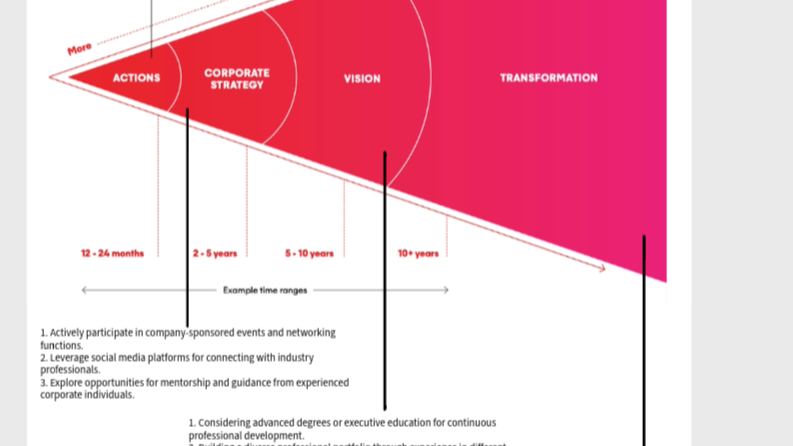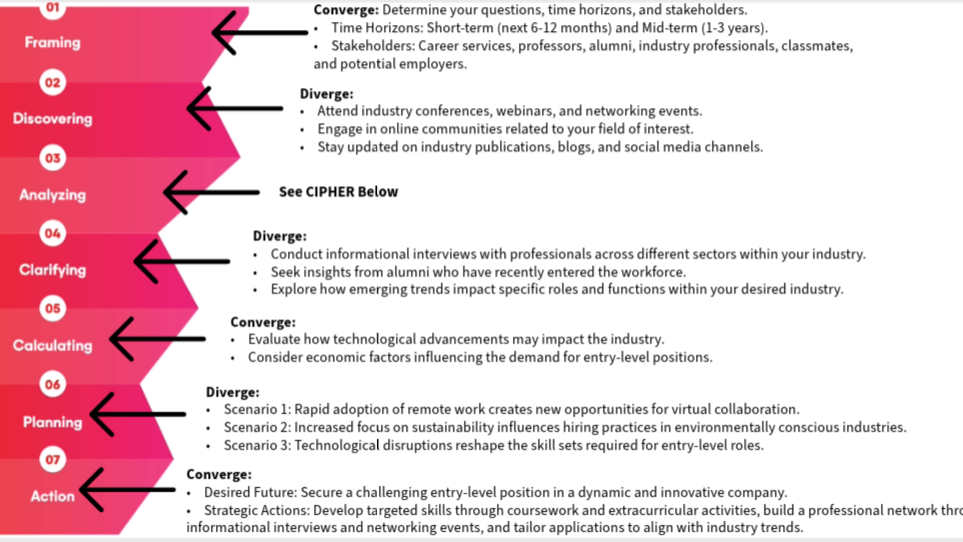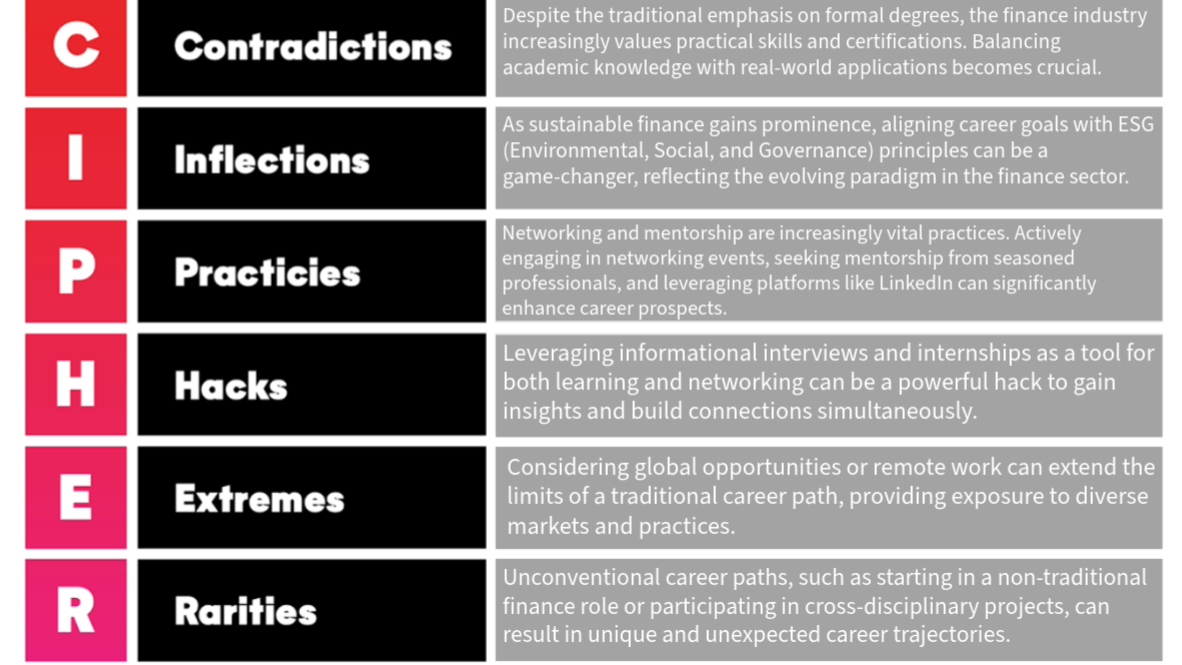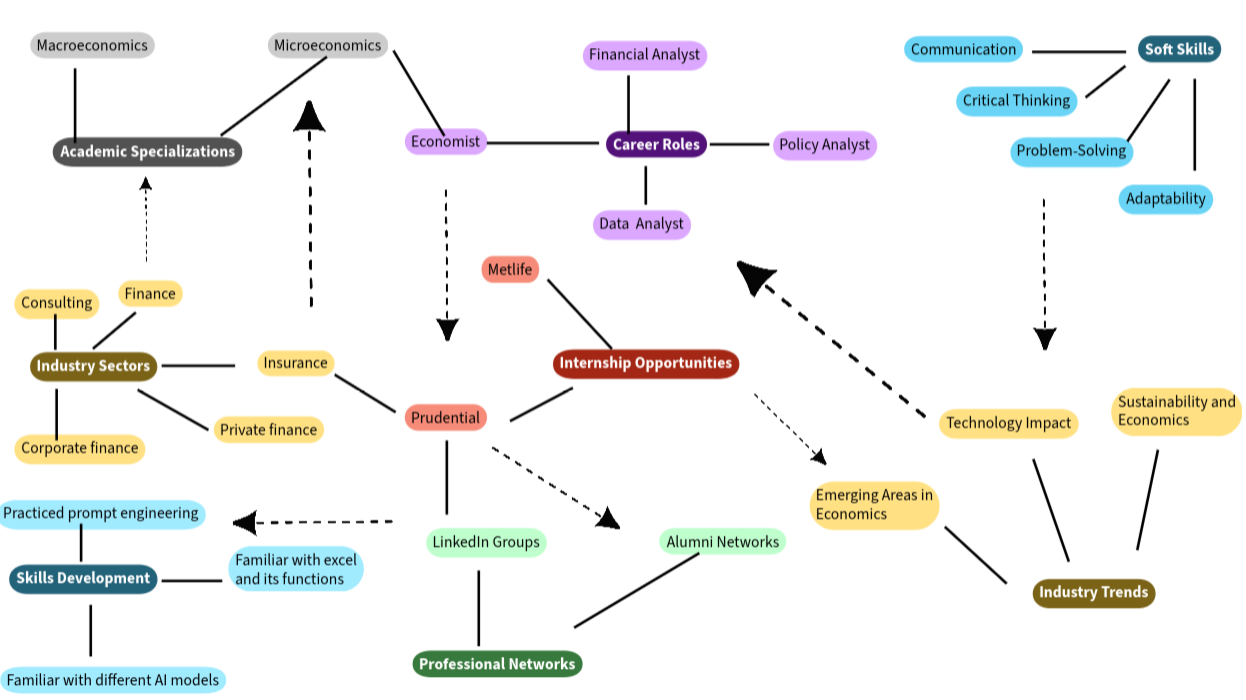For the inner part
Technology:
Stay Informed: Regularly follow tech news, industry reports, and financial technology (fintech) developments. Understand how emerging technologies, such as AI, blockchain, and cybersecurity, are influencing finance.
Relevant Courses: Consider taking courses related to financial technology, data analytics, and information systems. Developing a strong foundation in technology will enhance your skill set and make you more appealing to employers.
Internships and Projects: Seek internships or projects that involve the intersection of finance and technology. Hands-on experience will not only build your resume but also provide valuable insights into practical applications.
Weak Signals:
Research and Curiosity: Cultivate a curious mindset and actively seek information on emerging trends. Follow thought leaders, attend webinars, and engage in discussions to identify weak signals that might shape the future of finance.
Networking: Connect with professionals in the finance and technology sectors. Attend industry conferences, join online forums, and participate in networking events to gain insights from experienced individuals who might share emerging trends.
Strong Signals:
Industry Reports: Regularly review industry reports and analyses that highlight strong signals in the finance sector. These can include reports from financial institutions, consulting firms, and reputable financial news sources.
Certifications: Consider pursuing certifications relevant to finance and technology, such as those in fintech, data analysis, or cybersecurity. Certifications can signal to employers that you are well-versed in current industry trends.
Trends:
Follow Market Trends: Stay updated on macroeconomic trends and their impact on financial markets. Understand how geopolitical events, economic indicators, and global shifts influence investment strategies.
Coursework and Specializations: Tailor your coursework to include finance-related subjects and specializations that align with current industry trends. This might include sustainable finance, ESG investing, or digital finance.
Read Industry Publications: Regularly read finance-focused publications and journals to gain insights into ongoing trends and discussions within the finance community.
Networking with Professionals: Engage with finance professionals through networking events, informational interviews, or mentorship programs. This can provide real-world perspectives on current trends and help you align your skills with industry demands.
By proactively engaging with technology, weak and strong signals, and industry trends, a junior in college can position themselves as a well-informed and adaptable candidate in the competitive finance job market.
Putting together this foresight tool involved an extensive research effort, demanding a significant investment of time. Learning to navigate and utilize the Adobe platform for formatting added to the complexity of the process. The journey of familiarizing myself with the intricacies of the tool's features was time-consuming but crucial, contributing to a more thorough understanding of its capabilities and resulting in a refined and polished final product.






